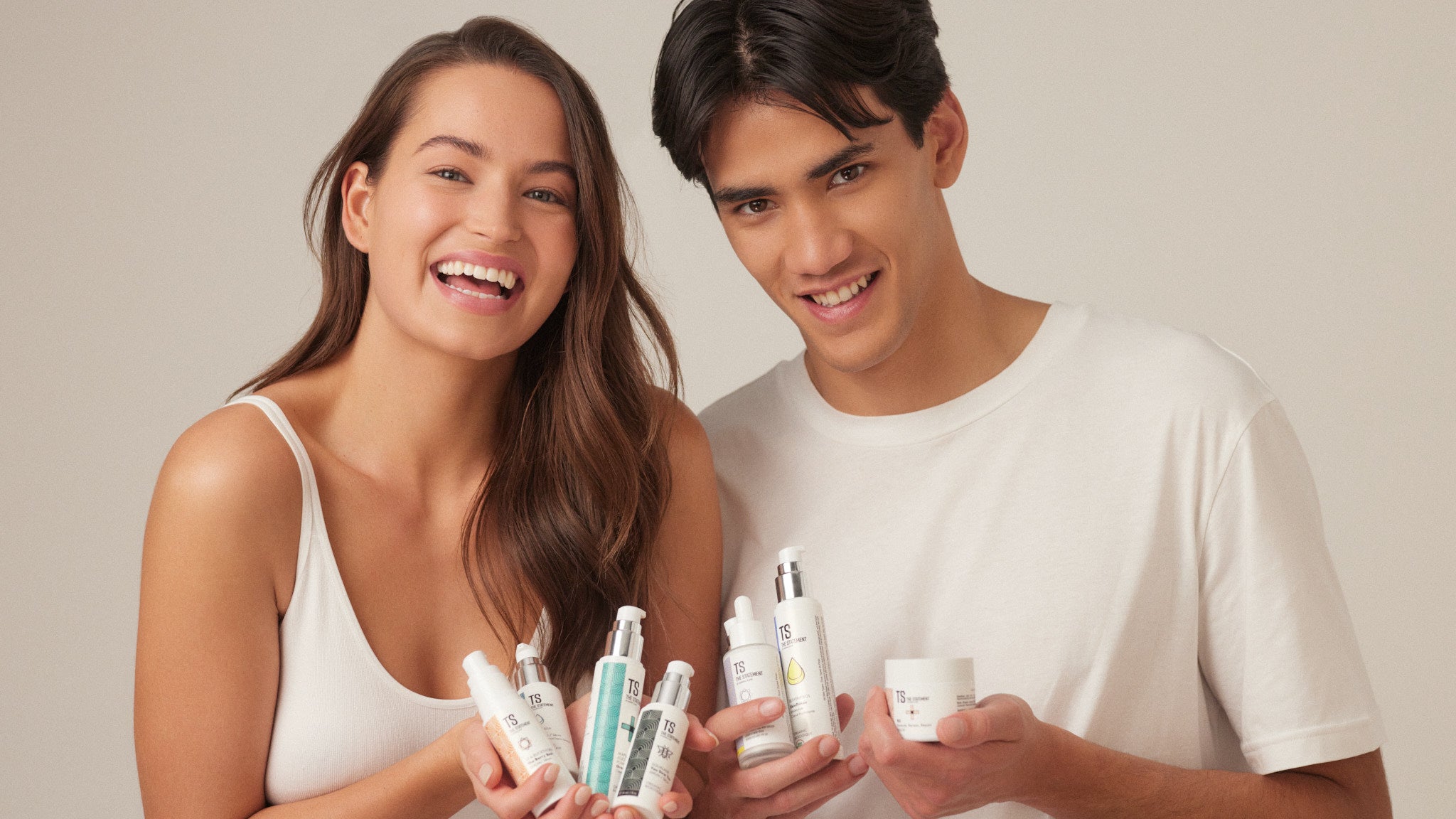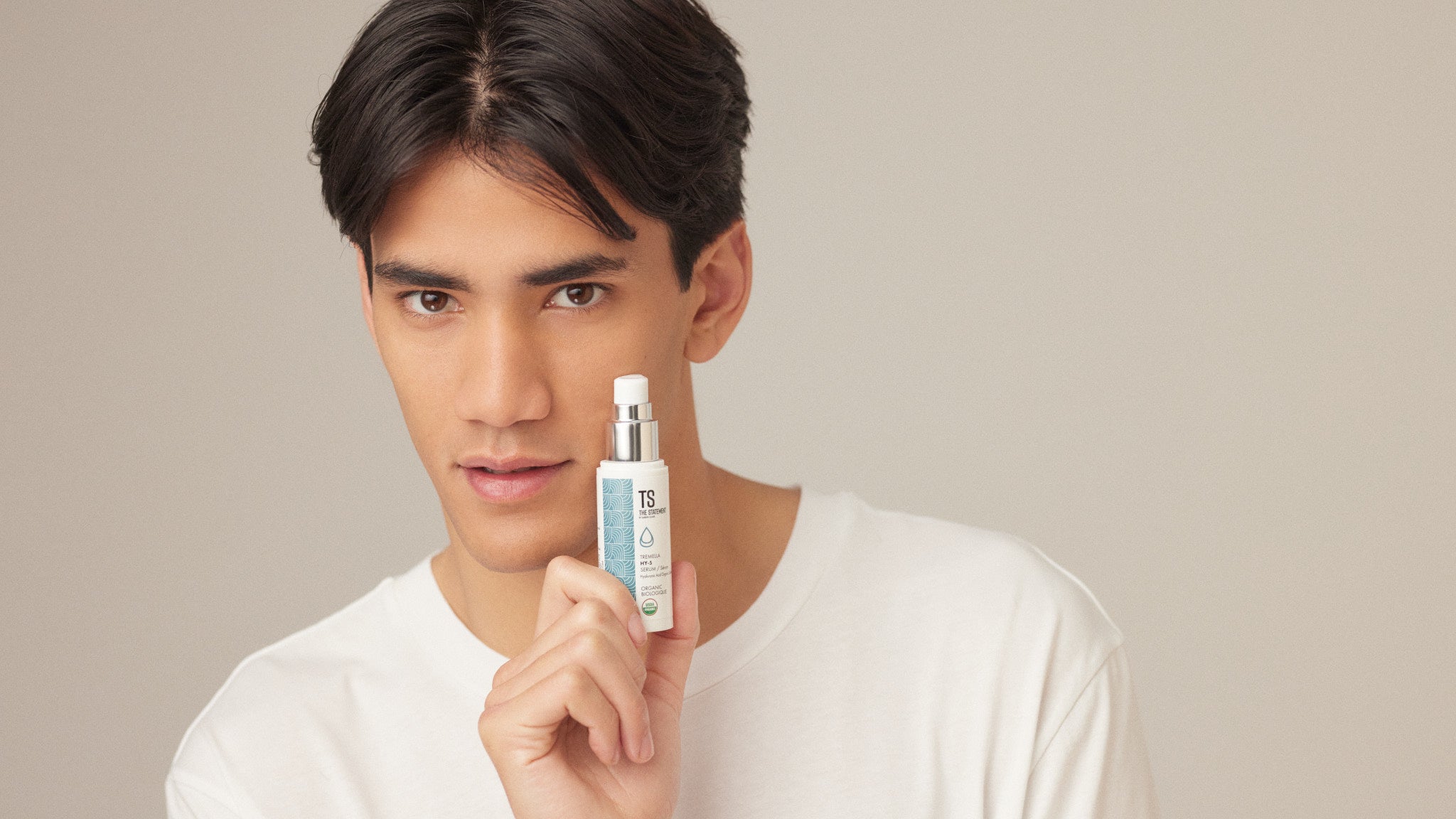
Let’s Talk About Greenwashing in Skincare
The rise in ethical consumerism, meaning customers who want conscious and environmentally friendly skincare, has, unfortunately, increased the prevalence of something else: greenwashing.
If you aren’t familiar with the term, Greenwashing is when businesses make their products or services sound better for the earth, and us, than they actually are.
Ultimately, when brands greenwash, they are putting profit over people and taking advantage of customers who want to choose products that align with their personal values. Greenwashing isn’t just harmful to consumers. It makes it more difficult for the brands who are making significant green efforts to gain trust and stand out in the skincare landscape.
What does greenwashing look like?
Are you wondering what greenwashing looks like in the skincare industry?
Here are 7 major greenwashing ‘sins’ that brands tend to commit:
Hidden trade-offs
Hidden trade-offs come down to a lack of transparency. It’s when brands claim that their product is green based on a limited set of attributes, neglecting to mention the other environmental issues that they are negatively contributing to. An example would be a company that markets itself as plastic-free; however, its packaging isn’t recyclable.
No proof
Often, brands will make environmental claims that aren’t verified through supporting information or a trustworthy third-party credential.
An example of no proof would be a brand that says they’re product is organic, but lack transparency on what that means. The label should include what percentage of ingredients are organic. It should also tell the potential buyer if they are certified organic by any third-party providers such as USDA, Pro-cert, or Ecocert.
Vagueness
Many of the terms used in skincare sound impressive, but in reality, they lack much meaning. Many skincare brands use vague words to mislead us into thinking that they are the better choice for the earth and us. When the opposite could be true.
Let’s look at the popular skincare term “non-toxic”. The term is misleading because no chemical or material is purely “non-toxic”.
Another example is the term “natural”. Just because something is natural doesn’t mean that it is good for you or the planet. For example, arsenic and rat poison are natural.
Other terms to be wary of are “organic”, “green”, and “sustainable”. If a brand isn’t providing information on what these terms actually mean for their business or product, then they could be greenwashing.
Irrelevance
Brands guilty of irrelevance will use terms that are, while accurate, ultimately irrelevant to the product. CFC-free is one example that skincare brands commonly use. CFCs are chlorofluorocarbons, which are actually banned under the Montreal Protocol. So adding the term CFC-free on a label is irrelevant because it has to be CFC-free. Everything is!
Lesser of two evils
Sometimes brands will highlight one true claim about a product to distract you from a darker truth. An example could be the use of recycled plastics, ignoring the contribution to non-biodegradable waste.
Fibbing
These claims are just outright lies. There is a history of brands being caught red-handed making up statistics, using fake certificates, or inventing other false claims.
Worshipping false labels
Brands guilty of this sin will give the impression that third parties endorse them when they simply do not, or the party doesn’t even exist. Brands guilty of this use fake labels, words, or images.
How to avoid greenwashing in skincare

If you’re keen to be green, doing your homework is necessary.
Here are a few tips for choosing skincare products that practice what they preach:
Read the label
When a product makes a big claim, check the ingredient list and see if they’ve got the goods to back it up.
Remember that ingredient lists are in order of the percentage found in the product. Let’s say that a product claims it is made with natural ingredients. Check the label to make sure that the natural ingredients are high on the list, and take note of how many of the ingredients qualify as natural.
Investigate ingredients
The Environmental Working Group publishes an exhaustive list of ingredients to avoid in skincare in the US. You can refer to this when deciding on a product, and help you find any red flags.
Don’t fall for trendy ingredients
While many trendy skincare ingredients have merit and can be an excellent addition to our skincare routines, do your research on the ingredient and the product. Big brand names will often throw a trendy ingredient into a product to hop on the latest bandwagon. And even a tiny drop allows them to advertise the ingredient.
Look for reputable certifications
Several reputable certifications can designate a conscious product. Look out for these to help you verify any claims a product is making. You can check out a list of reputable credentials for environmentally friendly beauty here.
Look for instructions on recycling the packaging
Make sure that any product you purchase has recyclable or reusable packaging.
Here’s what we’re doing
At The Statement by Sandra Claire, our commitment is to a healthful skincare movement. With a focus on pure and effective formulas, our products are created with ingredients that only serve the purpose of being good for you.
We avoid Greenwashing by delivering complete transparency regarding our products' sourcing, manufacturing, and supply to help our customers make educated choices. Locally manufacturing in Canada gives us complete control over the production process and reduces our carbon footprint.
Another initiative we are proud of is The Statement by Sandra Claire's recycling program. While we aim to use as minimal packaging as possible, we also offer the opportunity for customers to return empty product containers to us with a free shipping label that can be printed from our website. This allows us to recycle them properly and reduce landfill waste.
We’re always here to answer any questions you may have about our products, initiatives, or philosophy. Reach out to our Customer Experience Team at info@thestatementskincare.com. We can’t wait to hear from you!



Comments